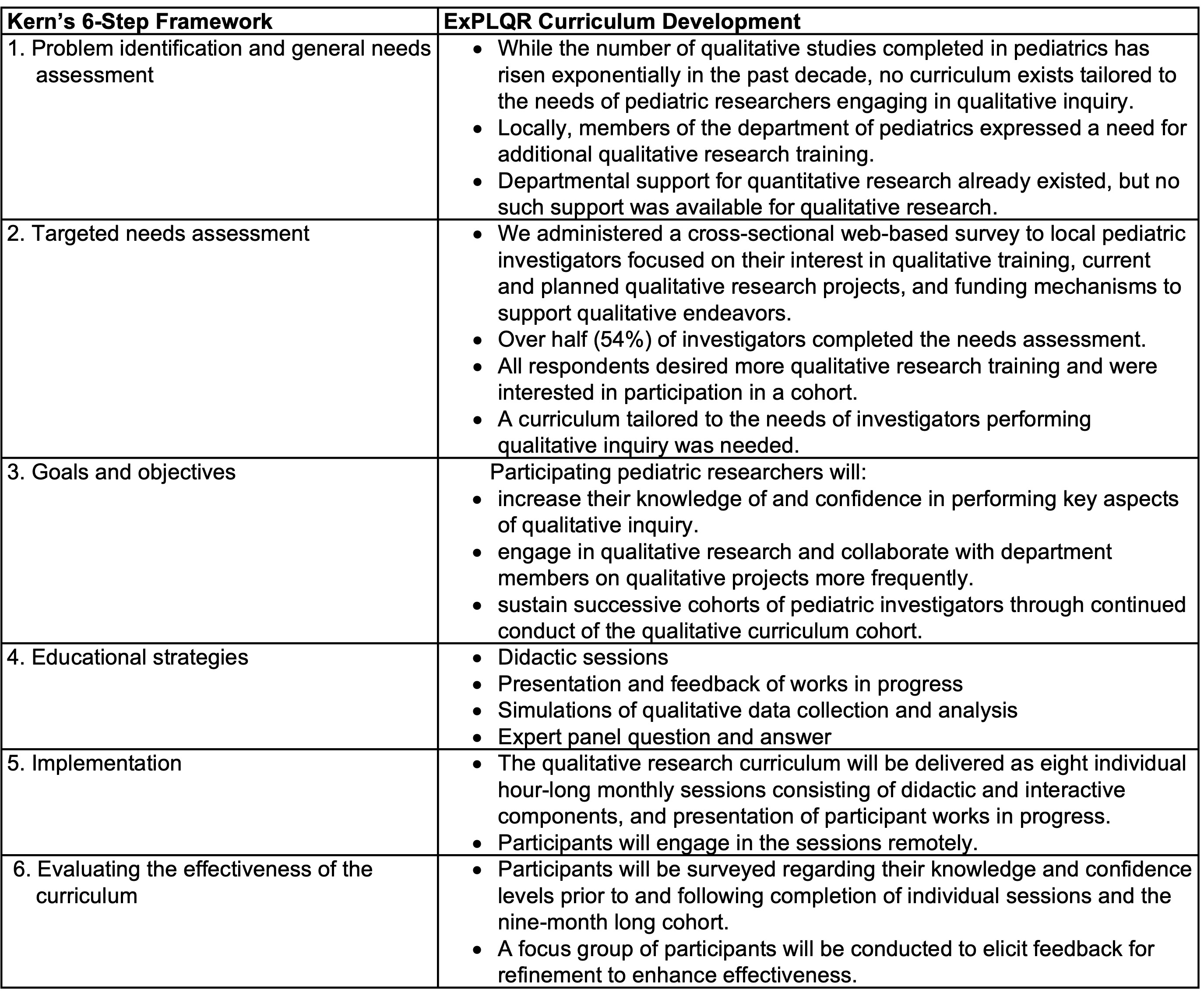Medical Education
Session: Medical Education 3
545 - Empowering Pediatricians Learning Qualitative Research (ExPLQR): Development and Delivery of a Novel Qualitative Research Curriculum
Friday, May 3, 2024
5:15 PM - 7:15 PM ET
Poster Number: 545
Publication Number: 545.194
Publication Number: 545.194

Taylor R. House, MD, MS (she/her/hers)
Assistant Professor
University of Wisconsin School of Medicine and Public Health
Madison, Wisconsin, United States
Presenting Author(s)
Background: Qualitative methodology provides a unique means to amplify patient and family voices in pediatric research and subsequently clinical care. Yet, clinical research training has traditionally centered on quantitative methodology, leaving clinicians unprepared to engage in qualitative inquiry.
Objective: To design a novel qualitative research curriculum for pediatric investigators.
Design/Methods: We convened a panel of medical educators and pediatric investigators with qualitative research expertise and utilized Kern’s 6-step approach to curriculum development (Table 1). First, we identified a broad need for enhanced qualitative training among pediatric investigators (Step 1). To further assess this need, we administered a cross-sectional web-based survey to local pediatric investigators in August 2022 querying their interest in qualitative training, current and planned qualitative research projects, and funding mechanisms to support their qualitative projects (Step 2). Data were summarized descriptively. Based on responses, we developed goals and learning objectives (Step 3) and matched them to adult learning strategies (Step 4). Finally, we developed an implementation plan (Step 5) and assessment tools (Step 6) to evaluate the curriculum.
Results: Response rate was 54% (21/39=54%). Respondents were 76% faculty, 19% staff, and 5% trainees. Most respondents (57%) were already engaged in a qualitative research project; half of these projects were identified as being in the planning stage. Fewer than half (38%) of respondents had funding to support their qualitative projects. All respondents expressed an interest for additional qualitative training and participation in a longitudinal cohort to this end. We subsequently developed a longitudinal cohort curriculum titled ExPLQR, Empowering Pediatricians Learning Qualitative Research. Goals of the curriculum are to 1) increase knowledge of and confidence in performing key aspects of qualitative inquiry with emphasis on planning, initiating, and funding; 2) enhance engagement and collaboration in qualitative research within the department; and 3) sustain successive cohorts of pediatric qualitative investigators. The curriculum will be delivered through eight monthly, hour-long, remote sessions.
Conclusion(s): Local pediatric investigators are engaged in projects utilizing qualitative methodology and express a desire and need for additional support, particularly in initiating and funding qualitative work. We plan to deliver our novel ExPLQR curriculum to departmental pediatric investigators and evaluate its effectiveness through a mixed methods investigation.

